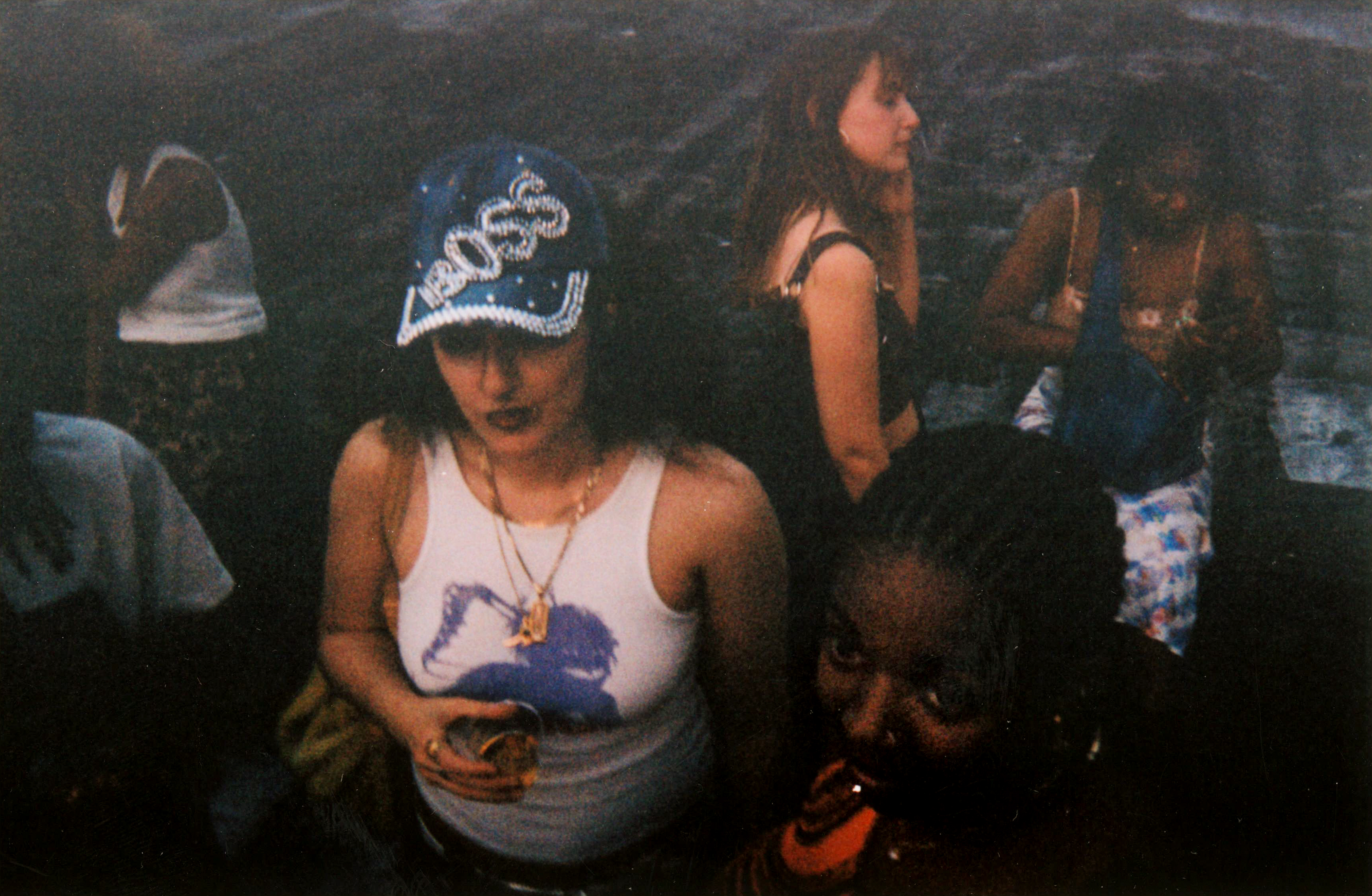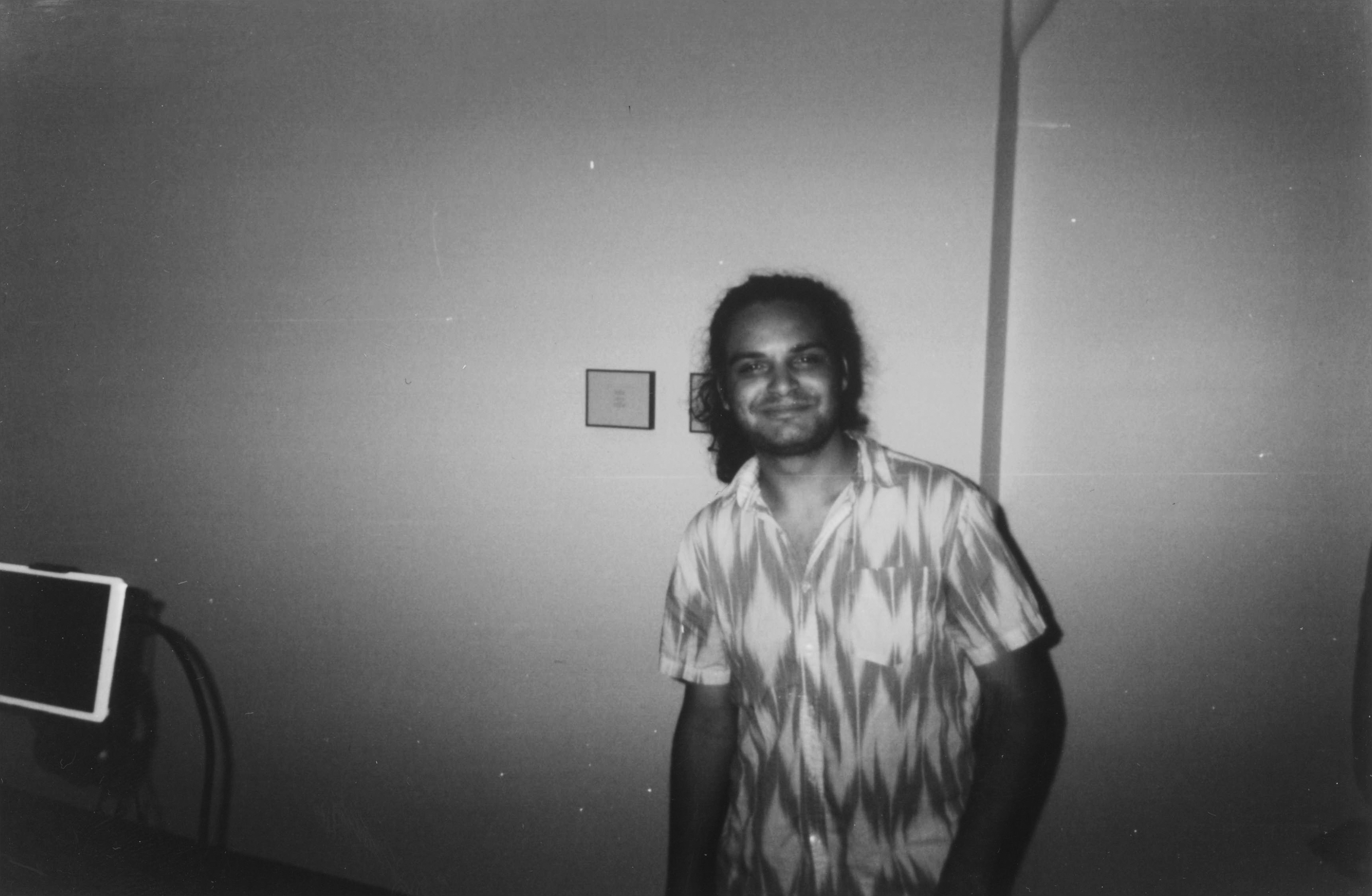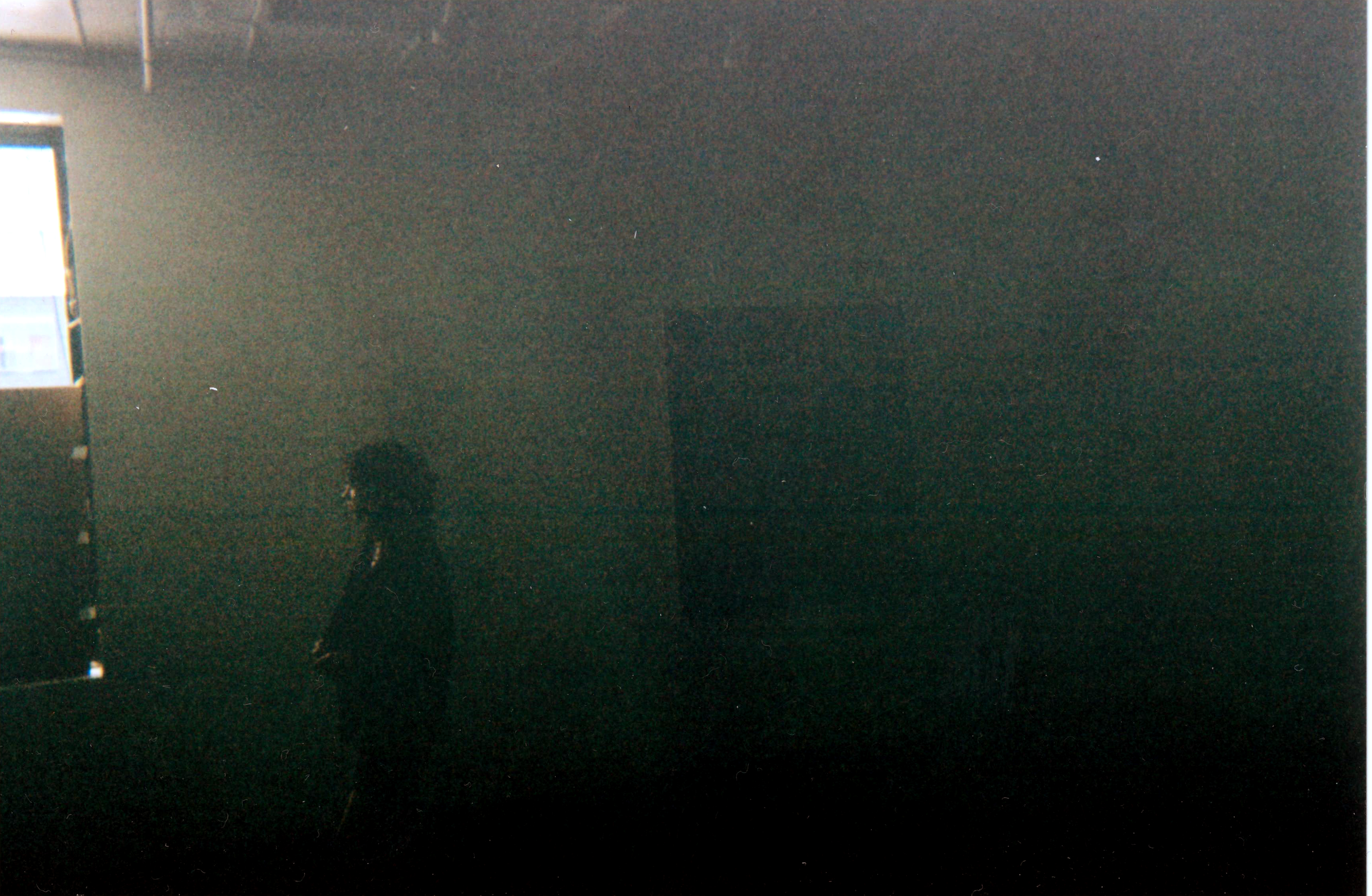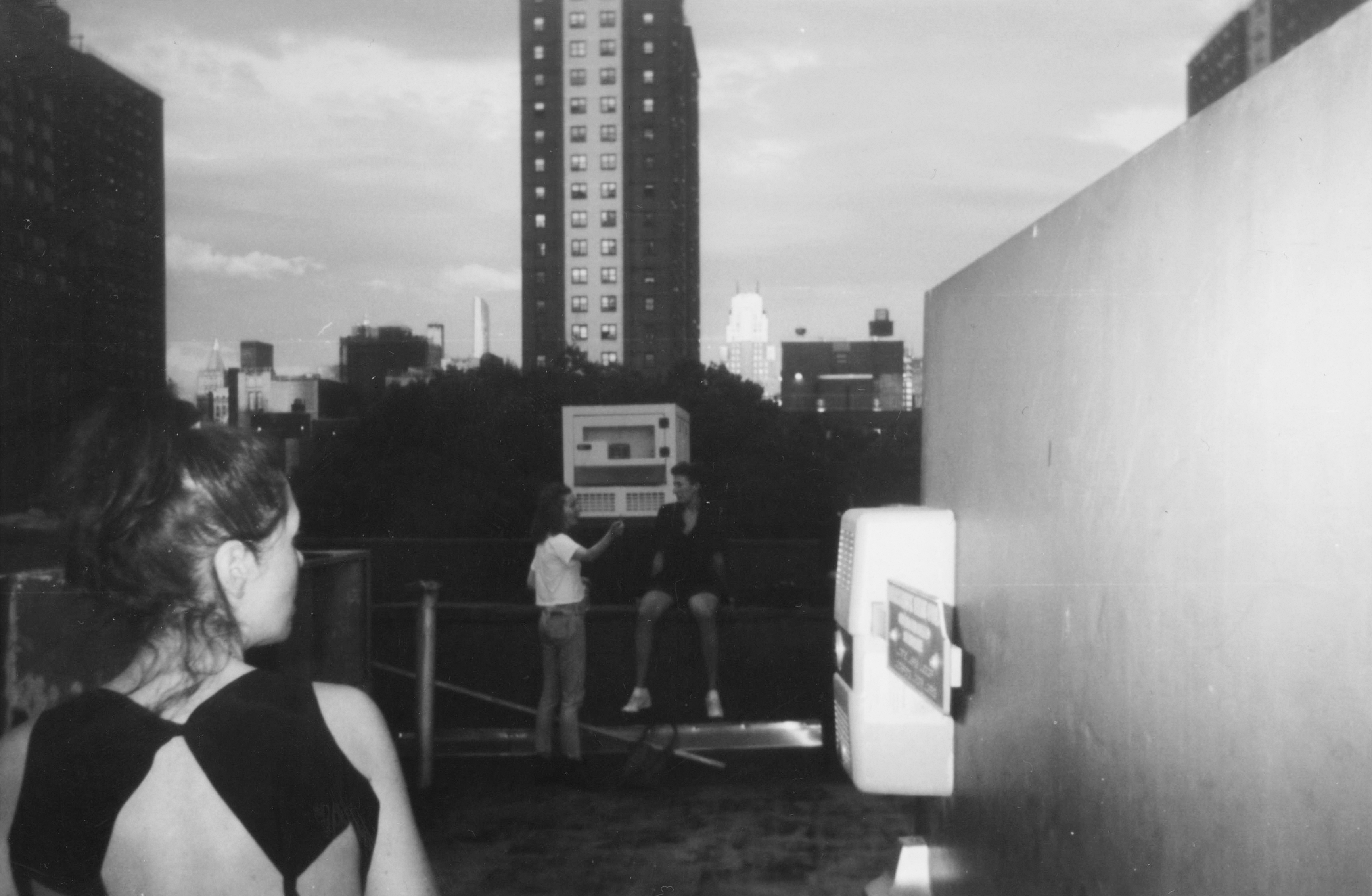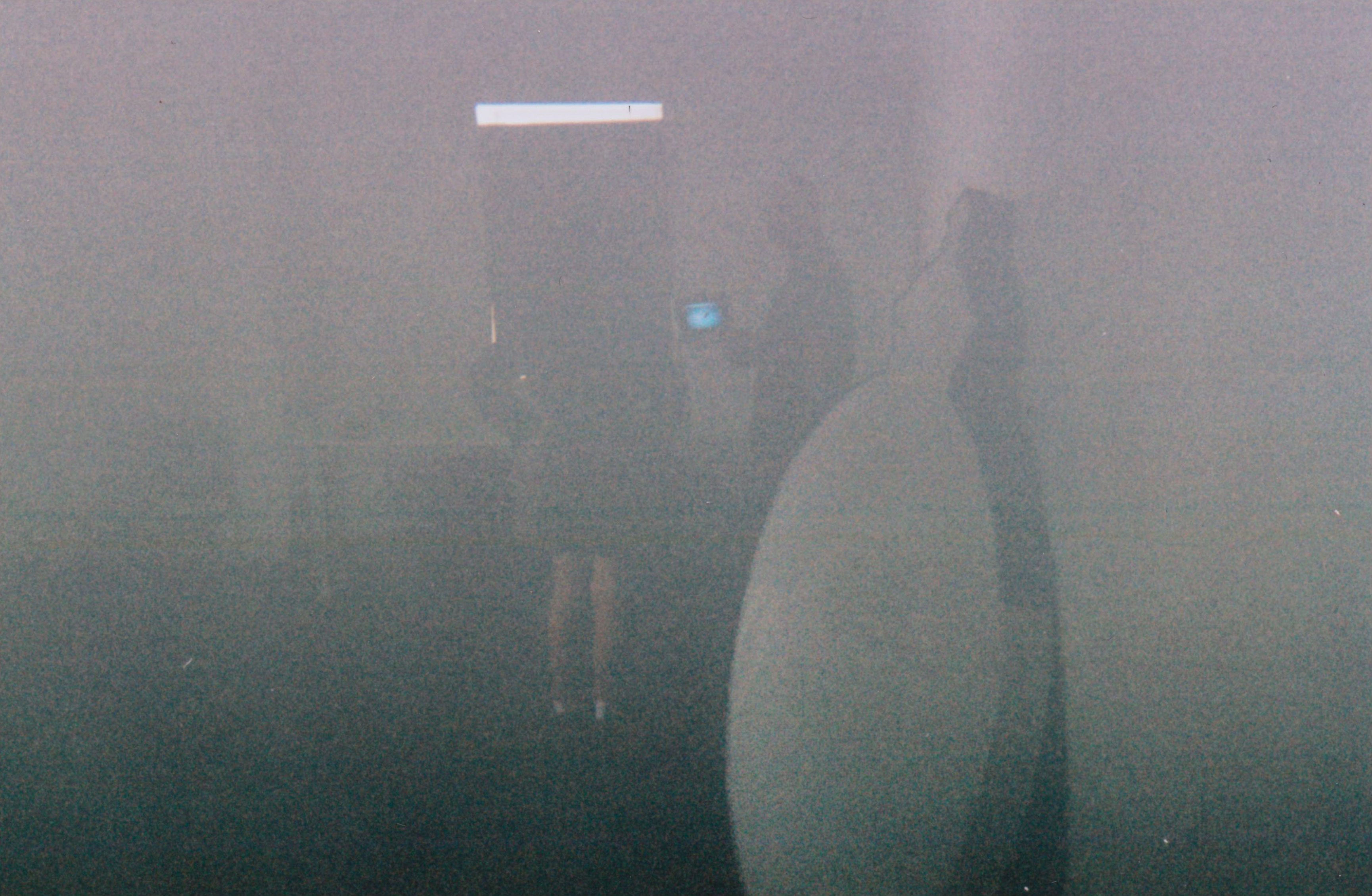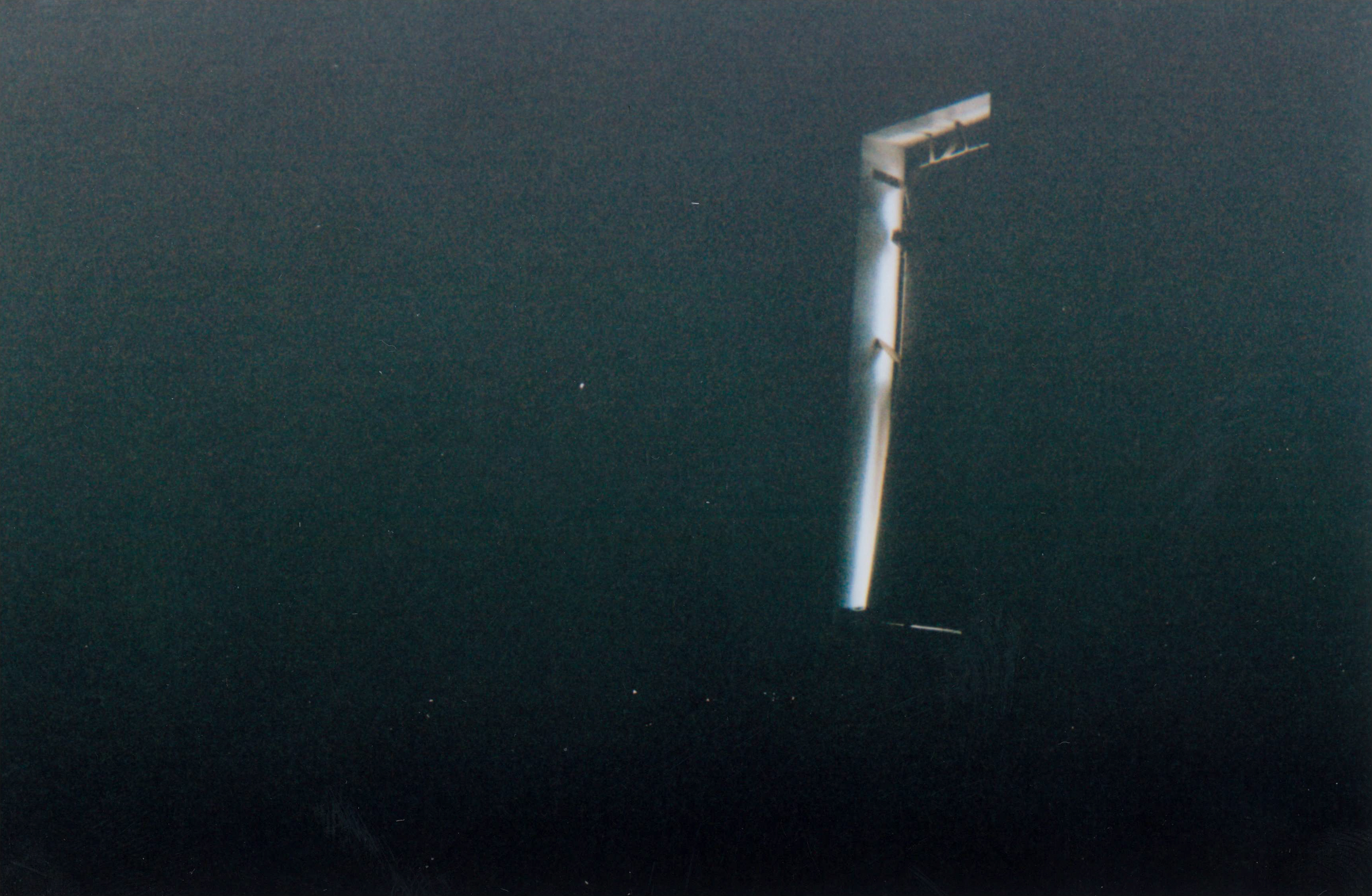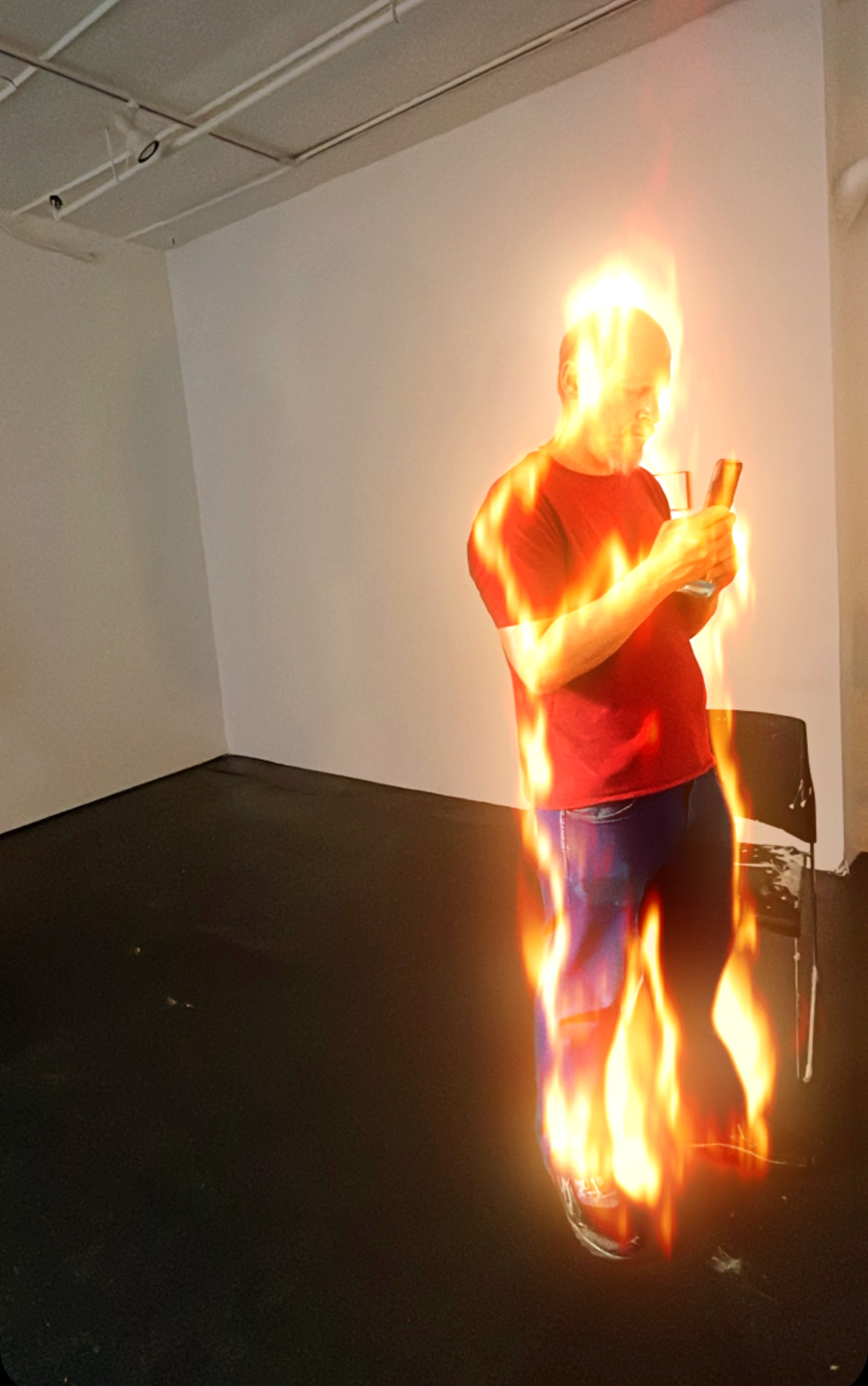
Jim Fletcher the actor, playing the role of Photographer: we see in his photos what he saw when he clicked his shutter. He performed a fictional role that resulted in real labor and physical photographs.
When his character asked people if he could take their picture he sought real consent. When he took those pictures they produced real documents, showing that people, in a time, at a place, came together. Between Jim Fletcher and the character he was playing, I can't say who made the images, only that they affect me in the way that images do. They make something visible that wasn't visible before; they occupy a moment with that visibility and produce what we might choose to believe is a linkage between moments passed and present time.
In that way they look like every photograph that has ever been taken. The strong pastiche of these images also indicates that we, in our present moment, are less alien to our pasts, which appear so different in pictures. The authenticating power of the photos begs the question of the theatre of work: to what extent is the work place synonymous with the stage? To what extent is the exhibition photographer an actor playing a role?
These questions point to many beautiful possibilities but they also point to a less jubilant fact about photography: that it's occupancy of the moment replaces the truth content of that moment with the truth content of a methodically generated product, with totally different characteristics than the very subjective human experience of setting, location, subject, context, pretext, etc.
Life and reality are not methodically produced, so there must be something very backwards about its methodical representation. This is not to say that Jim's photographs were scrupulous (or that they weren't), it's more to say that his performance was real.
-Jason Hirata

